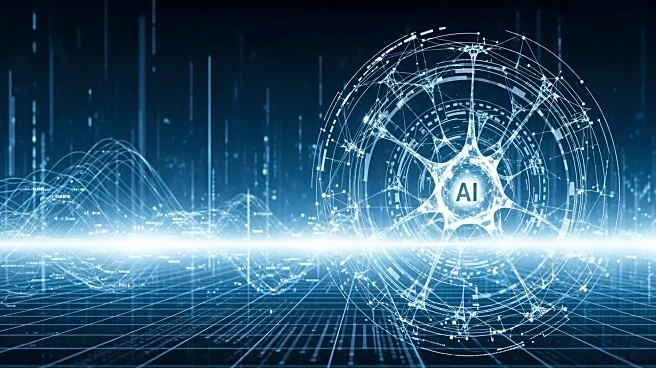What's Happening?
A consortium of over 20 ad tech companies, including Yahoo, PubMatic, and others, has launched the Ad Context Protocol (AdCP), a new standard aimed at standardizing communication between AI agents in advertising. This protocol seeks to enhance consistency
and interoperability across advertising platforms, allowing AI agents to carry out tasks on behalf of humans more effectively. The AdCP code is now publicly available on Github, marking a significant step towards integrating AI technology into advertising processes.
Why It's Important?
The introduction of the Ad Context Protocol represents a pivotal moment in the evolution of automated advertising. By standardizing AI communication, the protocol promises to streamline operations across platforms, potentially reducing inefficiencies and enhancing the effectiveness of ad campaigns. This development is crucial for advertisers seeking to leverage AI for more precise targeting and improved campaign outcomes. As AI continues to play a larger role in advertising, the protocol could facilitate greater collaboration and innovation within the industry.
What's Next?
With the AdCP now live, companies are expected to begin integrating the protocol into their advertising systems, potentially leading to widespread adoption across the industry. As stakeholders explore the capabilities of AI-driven advertising, further advancements in AI technology and its applications in marketing are anticipated. The protocol may also prompt discussions on ethical considerations and best practices for AI use in advertising, ensuring responsible and transparent operations.
Beyond the Headlines
The standardization of AI communication in advertising raises important questions about data privacy and security. As AI agents handle increasing amounts of consumer data, companies must address concerns related to data protection and consent. Additionally, the protocol's impact on job roles within the advertising industry could be significant, as automation reshapes traditional functions and necessitates new skill sets.
















